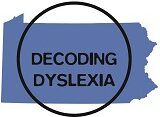Selecting a Tutor: Interviewing Tips
When faced with the realization that your child is struggling with reading, has been identified and diagnosed with a specific learning disability that affects reading and related language-based processing skills, or has been identified as dyslexic, the first thought or feeling may be one of helplessness. Parents want to do whatever they can to help their child and they typically want to do something immediately so that their child doesn’t fall behind anymore than they already have. In most unfortunate instances public school teachers are not trained in the scientifically based approaches that are effective for a child with dyslexia. Therefore, parents most likely cannot rely on effective instruction from their schools. Remediating dyslexia requires training beyond what most teacher preparation programs offer. The following recommendations will help you step by step to find the most suitable tutor for your child.
After finding a list of tutors within your area, determine if the instructor is trained and experienced in the use of Structured Literacy or an Orton Gillingham based program. They should be accredited by one of three organizations: The International Dyslexia Association (IDA), the International Multisensory Structured Language Education Council (IMSLEC), or the Academy of Orton-Gillingham Educators and Practitioners (AOGPE). These three organizations review and accredit high-quality training programs for identifying and remediating dyslexia.
Once you verify that the tutor is accredited by one of these organizations you can ask for the year and location of the training course and contact information for references from the director, institute, academy, or clinic. Involvement in ongoing, related professional development (attending workshops and conferences, serving on boards or committees, speaking at conferences, conducting workshops, etc.). A critical part of training is the practicum. It is very important to verify if the tutor did practicum work and if so, for how long and was it supervised. It is also beneficial to ask if the tutor has a scope and sequence. The scope and sequence of a program is critical. This outlines how concepts are introduced to a child and to make sure the tutor is delivering the program in a structured way.
While ensuring that any potential tutor has appropriate training and credentials is of primary importance, there are several other questions to also consider asking before hiring one. Below are some questions to get you started. Getting the answer to several of these questions should give you a good idea if the person you are looking to hire is qualified and will be a good fit for your child.
- What are your qualifications, certifications or credentials?
- Do you use an Orton-Gillingham program? Which one? Are you certified in it? How long have you used it?
- How long have you tutored children or adults with dyslexia?
- When did you first learn about dyslexia?
- Why do you tutor?
- Approximately how many dyslexic students have you tutored in the last 5 years?
- What are some examples of how you motivate and encourage students to continue working when they are frustrated or find the work difficult?
- How will you get a sense of my child’s learning needs?
- What specific strategies have you found to be most successful when you start to work with a child?
- Can you tell me a little bit about your teaching philosophy?
- How will you measure progress?
- What happens if my child doesn’t make progress?
- Given what you know of my child, what might interfere with your achieving your tutoring goals?
- Can you describe the type of learners with whom you work best?
- Are there any kids that haven’t been a good fit? If so, can you describe them?
- What are your favorite ages to work with?
- Do you prefer mild, moderate or severely impacted learners?
- Do you spend any of the session working on homework or do you only focus on remediation?
- How will you involve us (parents) in the tutoring process?
- How will you communicate with us, how often and in what format?
- How will you work and communicate with my child’s school?
- Do you have references I can speak to?
- What’s your availability?
- Are you committed to working with my child over a long period of time?
- Where will the tutoring sessions take place?
- How long is each tutoring session?
- How many sessions per week do you recommend?
- How much do you charge per session?
- How will I be billed?
- Are there other fees (for materials or assessments, for example)?
- What’s your policy for cancellations and make-up sessions?
- Can we schedule a free consultation to meet you?
Adapted from:
- Understood.org
- Dyslexia-Reading-well.com
- Decoding Dyslexia – OR
- “Questions to Ask a Potential Tutor,” from the book Straight Talk About Reading
